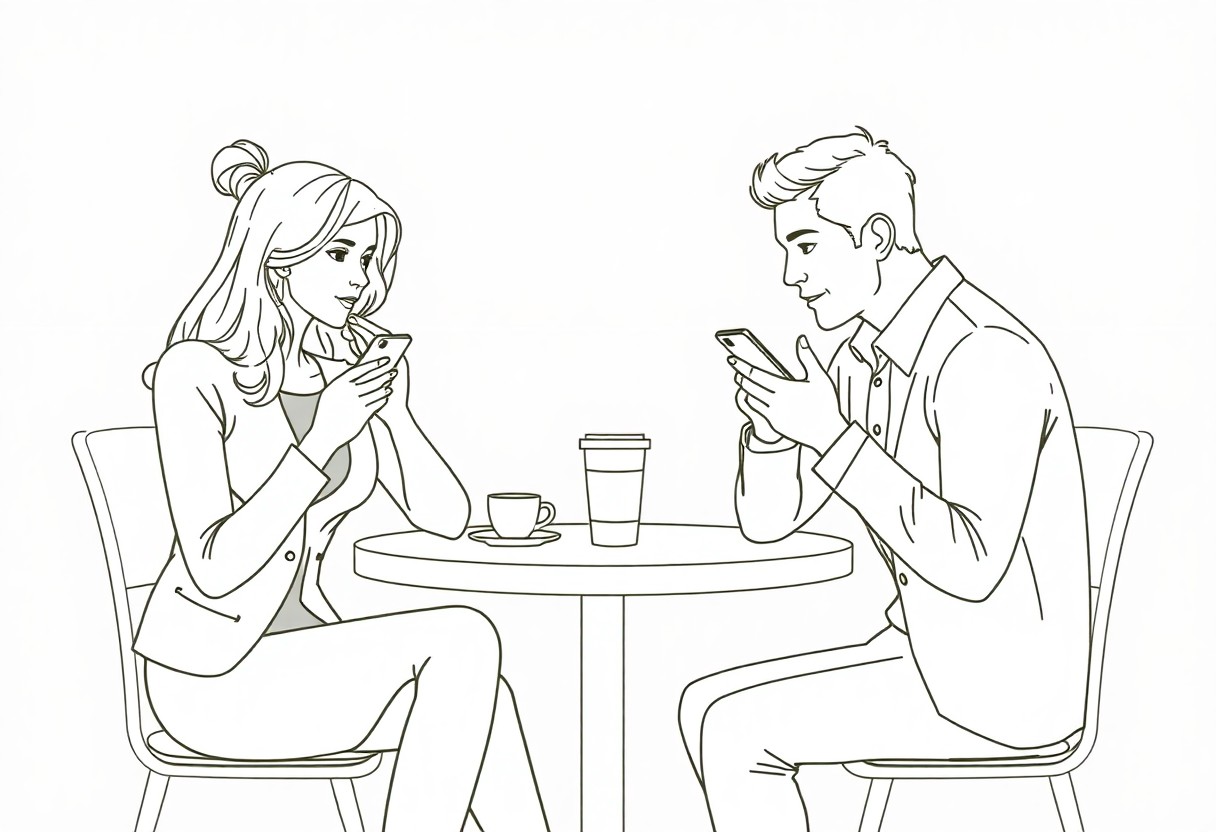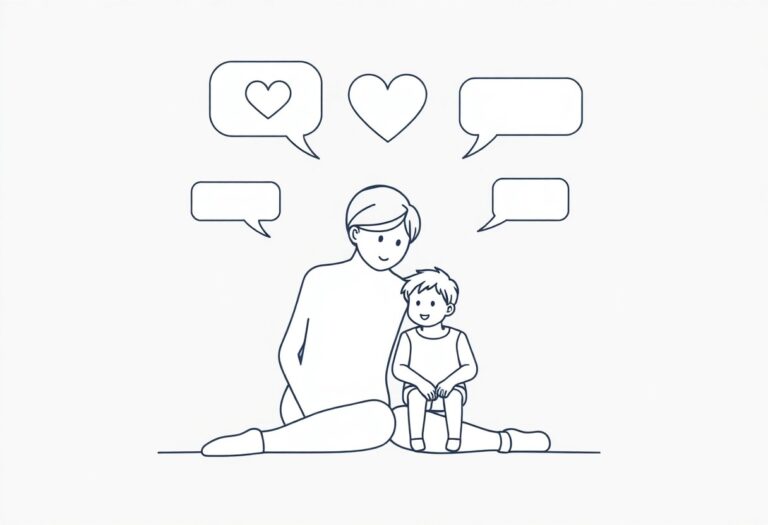5 Common Mistakes to Avoid When Dating Post-Divorce
Most people navigating the dating scene after a divorce encounter pitfalls that can jeopardise their chances of finding a meaningful relationship. Being mindful of your emotional state and understanding your needs is crucial to fostering positive connections. In this blog post, we’ll explore 5 Common Mistakes to Avoid When Dating Post Divorce to help you build a healthier dating experience as you move forward in your love life.
Key Takeaways:
Understanding the 5 Common Mistakes to Avoid When Dating Post Divorce
- Avoid rushing into new relationships; take time to heal and understand your needs after a divorce.
- Be honest about your past; transparency can build trust with potential partners.
- Don’t compare new partners to your ex, as this can hinder the development of a fresh connection.
- Set realistic expectations and embrace gradual progression in your dating journey.
- Prioritise open communication to establish a strong foundation and address any concerns.
Piecing Together the Emotional Puzzle
The journey post-divorce is often reminiscent of assembling a complex puzzle, where each piece represents a part of your emotional landscape. Understanding your past relationships, acknowledging your feelings, and learning from your experiences are key factors in creating a healthier dating environment. By investing time in self-reflection, you not only clarify your needs but also foster emotional resilience, making you better prepared to connect with potential partners in a meaningful way.
Inadequate Healing Time
Jumping straight into dating without allowing adequate time for healing can lead to unresolved emotional baggage. Each relationship has its scars, and if you don’t take the time to process these feelings, they may emerge unexpectedly in new connections. Understand that this healing journey is as integral as the pursuit of love.
Rushing into New Relationships
Pursuing new relationships immediately after a divorce often stems from a desire to fill the void left behind. However, this haste can lead to repeated cycles of disappointment and heartache. You might find yourself drawn to partners who reflect old patterns, rather than those who align with your current values and aspirations. Taking the time to explore your emotional landscape enables you to identify what you truly want in a partner, rather than simply opting for familiarity. Invest in yourself first; find hobbies, reconnect with friends, and begin on self-discovery before seeking companionship. This not only nurtures your spirit but also attracts healthier relationships into your life.

Ignoring Red Flags in Partners
Overlooking red flags in potential partners can lead to heartache and disappointment. Initial attraction may cloud your judgment, pushing you to ignore behaviours or traits that should raise alarm bells. Whether it’s possessiveness, inconsistent communication, or a lack of respect for boundaries, ignoring these signs can put you right back into a situation where your emotional wellbeing is compromised. It’s vital to stay alert and prioritise your values to avoid repeating past mistakes.
The Dangers of Disregarding Warning Signs
Disregarding warning signs in new relationships often results in a cycle of unhealthy dynamics. For instance, a partner who consistently belittles you under the guise of humour can erode your self-esteem over time. Studies show that ignoring these issues can lead to further emotional distress, as many individuals find themselves entangled in damaging patterns reminiscent of their past. Maintaining awareness allows you to differentiate between genuine connection and potential toxicity.
The Impacts of Past Trauma on Choices
Your past experiences, especially trauma, heavily influence your relationship choices and perceptions. Often, those who have faced emotional pain in previous partnerships may unconsciously gravitate towards familiar dynamics, even if they’re unhealthy. This tendency can keep you trapped in a cycle of repeated mistakes unless addressed.
Feeling drawn to familiar patterns stems from a sense of comfort in the known, despite its potential harm. For example, if you experienced betrayal in your last relationship, you might find yourself attracted to individuals who exhibit similar behaviour. Recognising these patterns is key to breaking the cycle, allowing you to consciously choose partners who align with your newfound values and respect your boundaries. Engaging in self-reflection or seeking professional guidance can help you identify triggers and make healthier choices moving forward.
Misaligned Expectations: The Reality Check
Jumping back into the dating pool often leads to unrealistic expectations. You might envision finding a partner who effortlessly meets all your needs, but not everyone will match the image you’ve crafted. It’s vital to remain grounded, recognising that each new relationship will have its challenges and differences. Reflecting on your past experiences can help you identify what you truly value, allowing you to enter new connections with a clearer perspective.
The Perils of Idealising New Relationships
In the excitement of newfound romance, you may be tempted to idealise your partner, overlooking potential red flags. This can lead you to believe in a fairy-tale version of them and your relationship, which ultimately sets the stage for disappointment or heartbreak.
Understanding Compatibility Over Attraction
Attraction can ignite intense feelings, but it doesn’t guarantee long-term compatibility. Evaluating deeper attributes, such as shared values, life goals, and communication styles, is necessary for building a meaningful connection.
Many people find themselves entranced by physical or superficial attraction, believing that it alone is enough to sustain a relationship. However, when the initial chemistry fades, you may realise that fundamental differences in your beliefs or lifestyles can create friction. Instead, prioritise understanding each other’s core values and emotional needs; this fosters a more solid foundation for your relationship. Engaging in open discussions about aspirations or daily routines can reveal whether you are truly compatible beyond the surface level, paving the way for a more enduring bond.
Poor Communication: The Silent Relationship Killer
Poor communication often lays the foundation for a swift downfall in relationships, especially after a divorce. Inability to express feelings, thoughts, and concerns can lead to misunderstandings that spiral out of control. The absence of open dialogue creates a void filled with assumptions and misinterpretations, which can extensively damage trust and intimacy. Your past relationships may have shown how silence can breed resentment, emphasising the need for clear and consistent communication as a remedy. Failing to articulate your thoughts can turn minor issues into major sticking points, jeopardising future connections.
The Importance of Transparent Dialogue
Transparent dialogue fosters intimacy and strengthens bonds. Being open about your feelings allows your partner to better understand your perspective, encouraging a deeper emotional connection. Sharing thoughts without fear of judgment creates a safe space for both partners, which is instrumental in building lasting trust. When you initiate conversations about your feelings and concerns, you set a precedent for your relationship, making transparency the foundation for a healthier connection.
Failing to Set Boundaries or Share Needs
Failing to set boundaries or clearly express your needs can lead to confusion and frustration in a budding relationship. When you’re unclear about your limits or requirements, your partner may inadvertently cross lines that spark feelings of disrespect or disregard. This often comes from not having enough time to reflect on what you genuinely desire after your divorce.
Understanding your own needs is vital. You may have developed specific preferences or boundaries during your previous relationship that you should communicate to your new partner. If you don’t specify your comfort zones, your partner might misinterpret your silence as indifference, which can lead to unmet expectations. For instance, if you require personal space due to past experiences, failing to articulate that can leave you feeling overwhelmed. Sharing such details not only clarifies your needs but also invites your partner to express their own, fostering a balanced relationship where both individuals feel respected and valued.
The Financial Pitfalls of Dating Again
Re-entering the dating scene often comes with financial surprises that can leave you unprepared. It’s common to overlook how dating expenses can stack up, leading to budget strain and potential resentment. Each outing may seem harmless, but consider how frequent dinners, excursions, and spontaneous trips can derail your financial goals. By being aware of these pitfalls, you can navigate dating without unnecessary financial stress.
Overspending on Dates: A Recipe for Regret
Going overboard on dates can lead to a financial hangover. Splurging on extravagant meals or lavish outings may impress your date initially, but the burden of overspending can quickly escalate into a source of stress. Rather than focusing solely on impressing someone, consider more affordable options that allow for genuine connection without the guilt of financial strain afterwards.
Navigating Financial Discussions with Finesse
Financial discussions in dating can often feel awkward, but they’re necessary to establish a healthy relationship. Initiate conversations about money with openness and honesty, focusing on priorities rather than specifics. For example, discussing how much you enjoy travel or valuing experiences over material things can set the stage for mutual understanding. This approach helps avoid misunderstandings and creates a foundation of trust and compatibility.
Effective communication about finances doesn’t mean detailing your entire financial history; instead, share your attitudes and beliefs regarding money. You might mention how you value saving for future goals, such as travel or buying a home, without disclosing specific numbers. This casual approach helps you both get on the same page and can even lead to discussions about joint experiences, such as saving for a weekend getaway or planning shared activities that cater to both your budgets. Such open dialogue establishes a supportive environment and reduces the risk of financial tension in your budding relationship.
Final Words
Ultimately, navigating the dating world after a divorce can be challenging, but avoiding common mistakes can lead to a more fulfilling experience. By recognising the importance of self-reflection, setting realistic expectations, communicating openly, taking your time, and respecting your own and others’ boundaries, you can foster healthier connections. Embracing these strategies will empower you to build meaningful relationships, paving the way for a brighter, more fulfilling romantic future.
FAQ
Q: What are the most common mistakes people make when dating after a divorce?
A: Some of the most common mistakes include rushing into a new relationship without allowing enough time for healing, projecting unresolved feelings from the divorce onto a new partner, not being clear about what they want in a relationship, neglecting self-care and personal growth, and failing to communicate openly about past experiences and expectations.
Q: How long should I wait before dating again after my divorce?
A: The ideal waiting period differs for everyone and depends on individual emotional readiness. Some may feel prepared to date within a few months, while others might need a year or longer. It’s imperative to ensure that you have worked through your feelings related to the divorce and can approach new relationships with a positive mindset.
Q: Is it a mistake to date someone who is also recently divorced?
A: While dating someone who is also recently divorced can pose challenges, it is not inherently a mistake. Both individuals may have similar experiences and understand each other’s feelings. However, it is essential to ensure that both parties are genuinely ready to move on and not use the new relationship as a means to escape their past.
Q: How can I avoid projecting my past relationship issues onto a new partner?
A: To avoid projecting past relationship issues, it is beneficial to engage in self-reflection and therapy, if necessary. Understand your triggers and address any unresolved feelings before entering a new relationship. Practising open and honest communication with your partner about your past can also foster a healthy environment for growth.
Q: What role does self-care play in dating after divorce?
A: Self-care plays a vital role in dating post-divorce, as it allows you to focus on your own emotional and mental well-being. Engaging in activities that promote self-esteem, happiness, and empowerment can help you approach dating with confidence. When you prioritise your self-care, you are likely to form healthier relationships based on mutual respect and understanding.
Dating after divorce | Legal Separation versus Divorce | Separation and divorce






